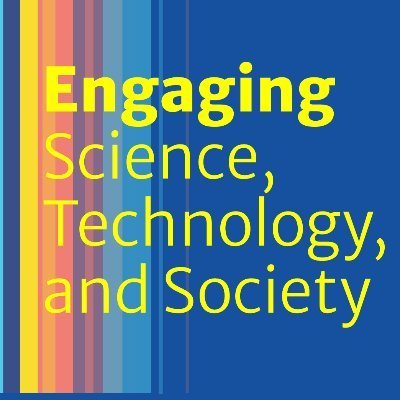Sociology of Artificial Intelligence
What does sociology have to offer to the critical study of AI? See below for scholarly resources on this topic, including our original pair of scoping articles and recent special collection featuring the work of early career scholars. Check out the Health, Tech, and Society Lab’s original research on community resistance to AI technologies at the Port of Los Angeles, including our open access publication in Engaging STS and community-oriented zine!
Kelly Joyce and Taylor M. Cruz. 2024. “A Sociology of Artificial Intelligence: Inequalities, Power, and Data Justice.” Special Collection, Socius.
Kelly Joyce, Laurel Smith-Doerr, Sharla Alegria, Susan Bell, Taylor M. Cruz, Steve G. Hoffman, Safiya Umoja Noble, and Benjamin Shestakofsky. 2021. “Toward a Sociology of Artificial Intelligence: A Call for Research on Inequalities and Structural Change.” Socius 7: 1-11. [Open access]
Steve G. Hoffman, Kelly Joyce, Sharla Alegria, Susan E. Bell, Taylor M. Cruz, Safiya Umoja Noble, Benjamin Shestakofsky, and Laurel Smith-Doerr. 2022. “Five Big Ideas about AI.” Contexts 21(3): 8-15.
Taylor M. Cruz and the Health, Tech, and Society Lab. 2023. “Algorithms in the Margins: Organized Community Resistance to Port Automation in the Los Angeles Harbor Area.” Engaging Science, Technology, and Society 9(3): 32-52.
Sophie Wang and Taylor M. Cruz. 2023. AI for Whose Good? Lessons from Community Resistance to Automation at the Port of Los Angeles. Critical STS and Ethnographic Zine.
This community-oriented project was a collaboration with Sophie Wang, co-founder of Free Radicals.
A Sociology of Artificial Intelligence:
Inequalities, Power, and Data Justice
Special Collection, Socius: Sociological Research for a Dynamic World
Recent years have witnessed a surge of interest in artificial intelligence (AI). To address AI’s growing visibility and importance, the authors edited a special collection that showcases cutting-edge sociological research on AI in areas such as health and medicine, work and labor, new research methodologies, and policy. The articles collectively position AI as a sociotechnical system, recognizing that AI integrates heterogeneous elements that intertwine the social and the technical. Each article brings different aspects of sociotechnical systems to light. The authors highlight three contributions sociologists are poised to make to the study of AI: (1) critical analysis of AI hype, promotion, and adoption; (2) empirical study of AI’s co-constitution with processes of social life; and (3) identification of avenues for structural change in creating equitable AI futures. The authors call for the development of novel research methods to study distributed AI platforms and for future research on inequalities, power, and data justice.
Kelly Joyce and Taylor M. Cruz. "Introduction: A Sociology of Artificial Intelligence"
Health and Medicine
Mira D. Vale. "Moral Entrepreneurship and the Ethics of Artificial Intelligence in Digital Psychiatry"
Shira Zilbersten. "Ethical Dilemmas and Collaborative Resolutions in Machine Learning Research for Health Care"
Vera Gallistl, Roger von Laufenberg, and Katrin Lehner. "Vulnerability Assemblages: Situating Vulnerability in the Political Economy of Artificial Intelligence"
Work and Labor
Eric Dahlin. "Who Says Artificial Intelligence is Stealing Our Jobs?"
Research Methods
Thomas Davidson. "Start Generating: Harnessing Generative Artificial Intelligence for Sociological Research"
Crystal Peoples, Paige Knudsen, and Melany Fuentes. "The Use of Facial Recognition in Sociological Research: A Comparison of ClarifAI and Kairos Classifications to Hand-Coded Images"
Tech and Identity
Kenneth Hanson and Hannah Bolthouse. "'Replika Removing Erotic Role-Play Is Like Grand Theft Auto Removing Guns or Cars': Reddit Discourse on Artificial Intelligence Chatbots and Sexual Technologies"
Policy Implications
Tina Law and Leslie McCall. "Artificial Intelligence Policymaking: An Agenda for Sociological Research"

